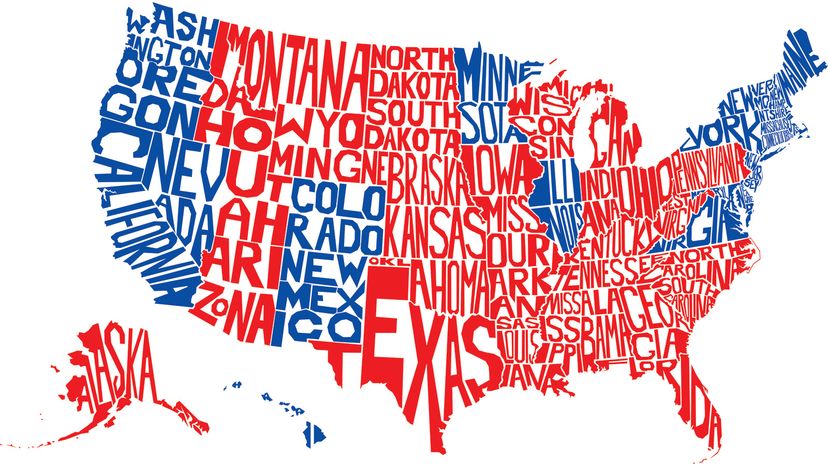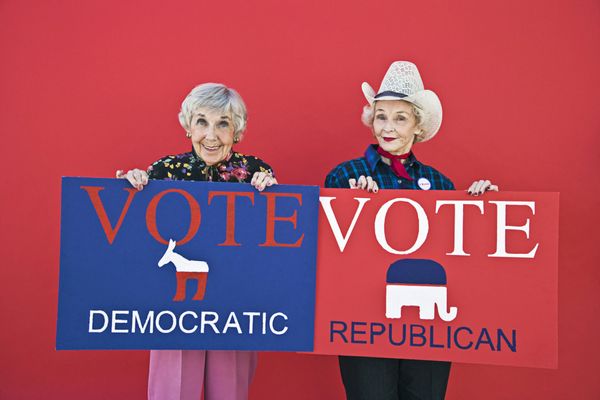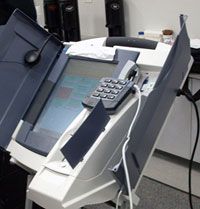
To someone unfamiliar with the U.S. political system, it might be puzzling that Donald J. Trump was elected U.S. president in 2016, even though he got almost 2.9 million fewer votes than the losing candidate, Hillary Clinton. Nevertheless, Trump took over the White House. That's because presidential elections are decided not by direct popular vote, but by a process called the Electoral College, in which each state gets a portion of the nation's 535 electoral votes, based on its population. That means that a candidate who racks up victories by impressive margins in some of the most populous states, as Clinton did, can still lose if an opponent wins enough states, even if they don't cumulatively have as many voters.
Unlike, say, hip-hop music or cheeseburgers, the Electoral College is an American tradition that hasn't been eagerly copied by the rest of the world. That's not to say that other countries don't have their own version of an electoral college. At least 10 other countries actually do, but they don't function in quite the same way that the U.S. system does, and they're sometimes used to select legislators rather than presidents. Here's a rundown on how electoral colleges work in those countries, according to the CIA World Factbook.
Advertisement
- Burma (aka Myanmar): This Asian nation has a complicated system in which three presidential candidates are chosen by the Presidential Electoral College, which consists of members of the lower and upper houses of the Pyidaungsu Hluttaw, or Assembly of the Union and members of the nation's military. The full assembly then picks a president, and the two who lose become vice-presidents. The real power in the government, though, is held by the state counselor, which is similar to a prime minister.
- Burundi: This small east African nation uses an electoral system to elect representatives to its Inama Nkenguzamateka, or Senate. Thirty-six of the body's 43 legislators are indirectly elected by a college of provincial councils that use a three-round voting system. In the first two rounds, a candidate must get a two-thirds majority, while the final round is determined by a simple majority.
- Estonia: This tiny former Soviet republic on the Baltic Sea chooses its president through an even more complicated system than the U.S. Estonia's Parliament votes on presidential candidates, but if none of them manage to secure two-thirds of the vote after three rounds, an electoral college consisting of both members of Parliament and local council members chooses between the two candidates who got the highest number of votes. If that doesn't result in a clear winner, the decision goes back to the entire Parliament.
- India: The south Asian nation picks its president and vice-president indirectly through an electoral college consisting of members of both houses of the Indian Parliament. Under the Indian system, the presidency is a largely ceremonial role akin to a monarch, since the office has no actual executive powers, according to this BBC article. The real authority goes to the nation's Prime Minister.
- Madagascar: This island nation off the East African coast relies upon an electoral college of municipal, communal, regional and provincial leaders to pick 42 of the 63 members of its Antenimieran-Doholona, or Senate. The remainder are chosen by the nation's president.
- Nepal: In the mountainous Asian nation, 56 of the 59 members of its National Assembly are elected by an electoral college of state and municipal government leaders.
- Pakistan: The south Asian nation's president is selected by an electoral college, consisting of members of the Senate, National Assembly and provincial assemblies.
- Trinidad and Tobago: The Caribbean island nation's president is picked by an electoral college of selected Senate and House of Representatives members.
- Vanuatu: The small south Pacific archipelago's president is elected by an electoral college consisting of Parliament and presidents of the nation's six provinces.
- Vatican City: The tiny European state's political leader is the Pope of the Roman Catholic Church. The Pope is elected, usually for life, by the College of Cardinals, an international group of high church leaders who were appointed by a previous Pope.
Additionally, some other countries — Botswana, Micronesia, the Marshall Islands, Nauru, South Africa and Suriname — simply allow their national assemblies to pick their presidents. But in 65 of the world's 125 democracies, the president — or the equivalent office — is directly elected by voters, according to the Pew Research Center, which notes that "no other democratic nation fills its top job quite the way the U.S. does, and only a handful are even similar."
There's a reason for that. "The U.S. Electoral College is such a departure from the basic tenets of democracy that it is not surprising other democratic nations have not adopted it," George C. Edwards III, a University Distinguished Professor of Political Science at Texas A&M University and author of the 2005 book, "Why the Electoral College is Bad for America," says in an email.
"We have it because of a peculiar set of circumstances, in which some delegates to the constitutional convention did not trust the people, some thought information was too limited, some wanted intermediaries (electors) between the people and the selection of the president, some feared the legitimacy of an elected executive, some were concerned about slavery and some had yet other motivations," Edwards explains. "None of these apply in other nations in the modern world — and none are applicable to 21st century America."
But even though the U.S. Electoral College hasn't been imitated, it's likely to continue as an anachronistic vestige of an earlier political environment.
That's because enacting a constitutional amendment to abolish it "would be next to impossible for the very reason that got it in there in the first place: the inordinate and undemocratic power given to low-population states," Christopher Beem, a political science professor at the Pennsylvania State University, explains via email. And he suggests that even if the institution was abolished, other problems might ensue. "Just as a pragmatic matter, what would we do if the presidential election is national and as close as it was in 2000 and 2016? Think of the fiasco in Florida and then imagine that on a national scale."
Advertisement


